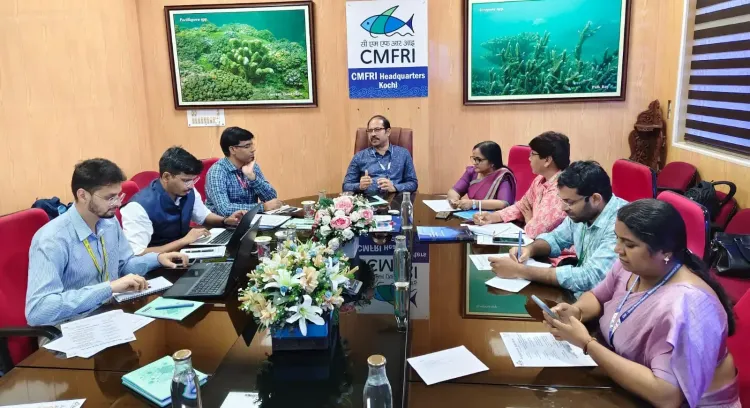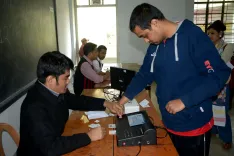Should India Establish National Standards for Marine and Coastal Governance?

Synopsis
Key Takeaways
- Creation of national marine standards is essential for sustainable fisheries.
- A comprehensive framework addressing key areas is needed.
- Collaboration among scientists, policymakers, and agencies is critical.
- Indian Standards will improve policy credibility.
- Alignment with global frameworks enhances trade competitiveness.
Kochi, Oct 7 (NationPress) Marine scientists and policy experts have urged the formation of national standards for marine and coastal management to protect ocean ecosystems and promote sustainable fisheries.
They highlighted the necessity for a comprehensive national framework that tackles essential areas like fisheries stock assessment, coastal resource mapping, and climate adaptation.
This call for action emerged during a workshop focused on Marine Biodiversity Conservation and Standardisation, co-hosted by the ICAR–Central Marine Fisheries Research Institute (CMFRI) and the Bureau of Indian Standards (BIS) on Tuesday.
Indian Standards are official documents that stipulate minimum requirements for consistent and scientifically validated practices. When applied to the marine sector, such standards would empower India to implement globally comparable methods for monitoring, conserving, and managing ocean resources, enhancing policy credibility and data accuracy.
During the event's inauguration, CMFRI Director Dr. Grinson George remarked, "Marine biodiversity is vital for ecosystem stability, fisheries productivity, and climate resilience. The absence of standard protocols has led to fragmented data and weak enforcement."
Dr. George announced that the CMFRI would lead the development of scientific methodologies to be established as Indian Standards, in partnership with the BIS and other organizations.
The institute will also aid in creating training modules, certification programs, and open-access repositories to facilitate adoption among scientists, policymakers, and coastal managers.
Experts noted that nationally recognized standards aligned with global frameworks such as the Convention on Biological Diversity (CBD) and the UN Convention on the Law of the Sea (UNCLOS) would not only bolster marine conservation but also enhance India’s competitiveness in seafood exports.
Virendra Singh, head of the BIS Environment and Ecology Department, stated that the bureau is dedicated to formulating environmental standards to boost marine sustainability and fisheries governance.
The workshop also suggested the establishment of an Indian Marine Sustainability Certification System under the BIS, aimed to provide a cost-effective, inclusive, and context-specific alternative to foreign sustainability certifications.
Participants included scientists from the CMFRI, the IFGTB, the Zoological Survey of India, and the BIS.









